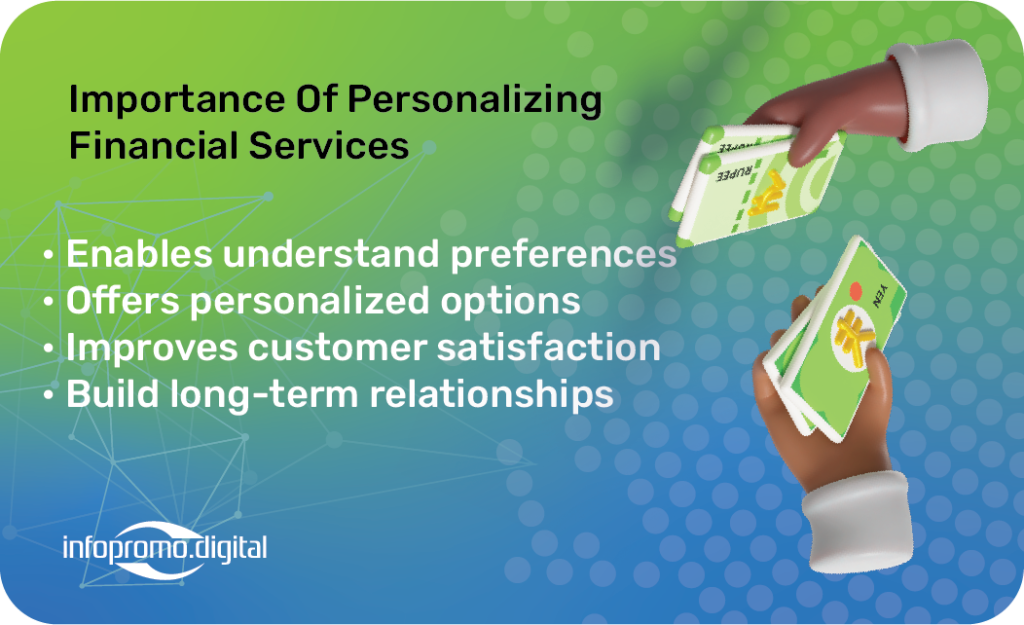
In the age of digital transformation, personalization has become a key differentiator in the financial services industry. Banks and financial institutions are leveraging advanced data analytics to offer tailored products and services, enhancing customer satisfaction and loyalty. This blog explores how banks analyze customer data to deliver personalized financial solutions that meet the unique needs of each individual.

The Power of Data Analytics Data analytics plays a crucial role in personalizing financial services. By analyzing customer data, banks can gain valuable insights into spending habits, preferences, and financial goals. These insights enable banks to develop personalized products and services that resonate with customers on a deeper level. For instance, a bank might identify a customer’s propensity for savings and offer a high-interest savings account tailored to their needs.
Tailored Product Offerings Personalization allows banks to tailor their product offerings to suit individual customer needs. This could range from customized loan options to personalized investment advice. For example, a customer looking to buy a home may receive tailored mortgage options based on their financial profile, credit score, and repayment capacity. Similarly, investment advice can be personalized to match the customer’s risk tolerance and financial goals, ensuring a more relevant and engaging experience.
Enhanced Customer Experience Personalized financial services significantly enhance the overall customer experience. By offering relevant and timely financial solutions, banks can improve customer satisfaction and build long-term relationships. For instance, personalized communication through targeted emails or mobile notifications can inform customers about exclusive offers or financial tips that align with their interests and needs. This proactive approach makes customers feel valued and understood.
Improved Customer Loyalty When customers receive personalized services that meet their specific needs, their loyalty to the bank increases. Personalization fosters a sense of trust and reliability, as customers feel that the bank truly understands and caters to their financial well-being. This loyalty translates into long-term customer retention and can lead to increased revenue through cross-selling and up-selling opportunities.

Leveraging Technology for Personalization Advanced technologies such as artificial intelligence (AI) and machine learning (ML) are instrumental in driving personalization in financial services. AI-powered chatbots, for example, can provide personalized customer support by analyzing past interactions and offering solutions that are most relevant to the customer. Additionally, machine learning algorithms can predict customer behavior and preferences, allowing banks to proactively offer personalized financial products and services.
Conclusion Personalizing financial services through data analytics and advanced technologies offers significant benefits for both banks and customers. By understanding and catering to individual customer needs, banks can enhance customer satisfaction, improve loyalty, and drive revenue growth. As the financial services industry continues to evolve, personalization will remain a key strategy for banks to stay competitive and relevant in the market.




